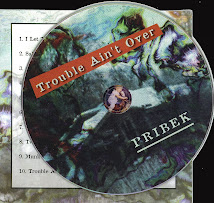by Pat Darnell
Why do we constantly reach out to touch our past?
Research is what it is: a re-touch, read again, dissect the past, oblivion, a lossy compression... and some say it is the Hebrew alphabet. (LINK) Our sensory limitations are stretched when we are asked to go by faith, believing in past things.
Mummy hunters in Egypt look into tombs and find bones of who knows who; why? In quests for understanding, we often lose our sense of priority, and go barging into grave sites.
Curious about our past, some even read and re-read Hemingway to find a clue. In that context, clues are few and far between, and overly cryptic info is rarely easily absorbed by living brains; brains that want to compress information into patterns of recognizable tidbits. That stops no one, though, as we build our machines in like form. A trade off some might say; as human sensory scales are limited.
Our computers use compression algorithms that make data more sortable, as some data is repetitive. By taking advantage of the limitations of the human sensory system, a great deal of space can be saved while producing an output which is nearly indistinguishable from the original. These lossy data compression methods typically offer a three-way tradeoff between compression speed, compressed data size and quality loss.Why then is it the past-present-and future is so odd in a rarefied existence sort of way? Because we go outward when we are discovering the past, as in space exploration, where information in the form of light takes light years to reach our sensors. And, as we travel inward, the same perplexity of information escapes our limited human experience; as we approach tiniest "substances" of multi-dimensioned matter that exist beyond our vision.
Memory is our foothold. For instance my wife and I both have expressed at various times "how" we remember the kids as babies. Once we were looking at photographs, and our daughter, as a baby, was dressed in a familiar jumpsuit. My wife said she remembers how the little jump suit felt in her hands. In remembering these valuable sensory events about our children, we are at our most transparent, or ego-dead moments.
Truth is -- information is not lost, but it takes faith to fill in the blanks when duplications are encoded, and the original is long gone.
"The ancients studied the patterns in the heavens- I ... [Stan Tenen] ... began to think, 'What would happen if you could map the patterns of the temples of the heavens onto the temples of your mind?' The patterns in the Hebrew Bible are the same as those in the heavens; when you chant regularly you are weaving these patterns onto your mind, internalizing the patterns of the universe-stepping out of your skin to have an ego-death experience." [Meru Foundation Research; HERE]






No comments:
Post a Comment